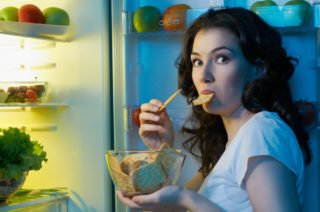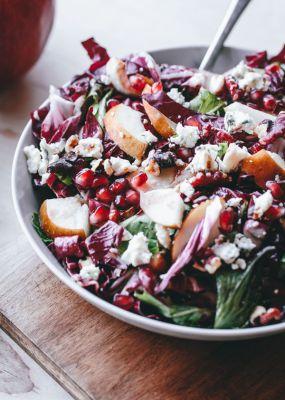The constant updates surrounding coronavirus can be overwhelming. Even the most realistic person is going to feel the strain of this invisible enemy that has seen nearly a quarter of the world’s population living in lockdown conditions and disrupting everybody’s mood.
What are the effects of living in such tense conditions? For many, the emotional effects of COVID-19 have been as significant as the economic impact. Mental Health America reports a 19% rise in first-time presentations of clinical anxiety from the first few weeks of February 2020. Since the first week of March 2020, a 12% rise has been reported.
Why is CV19 having an adverse effect on our mental health?
For many, this is the first experience of a truly global pandemic. We don’t know what to expect, there is no comfort zone to inhabit.
It has forced governments to remove liberties usually taken for granted by their civilians, and to impose restrictions more commonly associated with war-torn countries.

Photo by Andrew Neel from Pexels
Not to mention that we’ve also been torn away from our usual support networks and coping mechanisms. We may not visit the people we love or the places which soothe us. Those who are particularly vulnerable to the effects of coronavirus and so are self-shielding are forced to ignore the outside world for fear of this difficult-to-detect health predator.
Little wonder that anxiety levels are so high.
Stabilizing strategies for Corona anxiety
When normal routines are disrupted it can be more of a challenge to find reliable coping mechanisms.
There’s no opportunity to take comfort in the familiar patterns which might normally provide some relief from fear of the unknown. As a result, millions of people around the world are trying to find ways to adapt.
Sport England reported that two-thirds of adults surveyed in the UK found exercise more important than ever during lockdown.
It suggests that society is not just finding ways to complete their usual work out at home. More people are exercising too. This may have something to do with the fact that exercising provides them with an opportunity to leave their homes for a brief period, and indeed, why not. But the Sport England report also indicated that 65% of adults believe exercise to be helping their mental health during the outbreak crisis.
With different countries having varying degrees of restrictions, along with the practicalities of working out at home, CV19 seems to have triggered something of a creative revolution in our approach to physical and mental health.
So, how does this affect our eating habits?
Food, mood, and CV19
It’s no secret that food can often be an emotional topic for many of us. Anxiety such as that caused in response to the current global pandemic can cause a loss of appetite. In others, it might manifest as comfort eating, or even just snacking out of sheer boredom whilst feeling the confines of our homes.
 According to a Harvard Health article, the effects of such eating habits can be pretty self-destructive when it comes to how we’re feeling. This is because 90% of serotonin receptors are found in the gut. Serotonin is a chemical found in the body that helps to regulate mood and behavior. Does that mean we should be feeding them happy foods? Apparently so, according to researchers exploring nutritional psychology.
According to a Harvard Health article, the effects of such eating habits can be pretty self-destructive when it comes to how we’re feeling. This is because 90% of serotonin receptors are found in the gut. Serotonin is a chemical found in the body that helps to regulate mood and behavior. Does that mean we should be feeding them happy foods? Apparently so, according to researchers exploring nutritional psychology.
The gut and brain connection
The gut and the brain are connected, anatomically and physiologically, via the vagus nerve. It may explain the effects of anxiety on our digestion. Probably all of us have felt that nervous churn in the pit of our stomach.
The vagus nerve is a two-way communication highway. There is a lot of interest and research surrounding the effects of information travelling in the other direction: gut health and our mood.
One study found a strong association between a Mediterranean diet and a reduced risk for depression. The diet restricts sugary and processed foods. Instead, it concentrates on whole foods and vegetables. It also includes healthy fats such as those found in olive oil, nuts, seeds and fish.
There is more beyond the emotion-inducing self-guilt of unhealthy eating. The study concluded that there is reasonable evidence to connect food with the mood in a physiological sense, too.
What foods can help my anxiety during this crisis?
Processed foods are unhealthy for both our minds and bodies. They inflame our gut, causing sluggish digestion, reduced mood and mental capacity, explains one review of experimental findings. The comfort food isn’t that comforting after all. Dietary interventions which minimize or reduce inflammation are, in fact, much more likely to sustain us mentally and physically.
Researchers are advocating for anti-inflammatory diets that are rich in vegetables and fibre. These diets can help to keep our gut, and therefore mental, health functioning properly.
Multiple studies, including a UK study involving prison inmates given either nutritional supplements or a placebo, also agree that taking dietary supplements can also be a useful source of what’s needed to improve mood and reduce anxiety. 
Omega 3 fatty acids are increasingly lauded as the savior of mental health and brain function. Vitamin D deficiency is linked to dreaded Seasonal Affective Disorder, yet it is difficult to obtain from food alone. Our bodies produce vitamin D when exposed to sunlight, but we can also get it from foods and dietary supplements. It’s good news for those locked inside away from sunlight whilst our frontline health workers are up against it.
Who is the author?
 Elizabeth Hughes writes on behalf of Nutravita. She has been a Senior Content Writer for over 10 years. Creating content on numerous subjects including health and well-being.
Elizabeth Hughes writes on behalf of Nutravita. She has been a Senior Content Writer for over 10 years. Creating content on numerous subjects including health and well-being.





![women [longevity live]](https://longevitylive.com/wp-content/uploads/2020/01/photo-of-women-walking-down-the-street-1116984-100x100.jpg)









